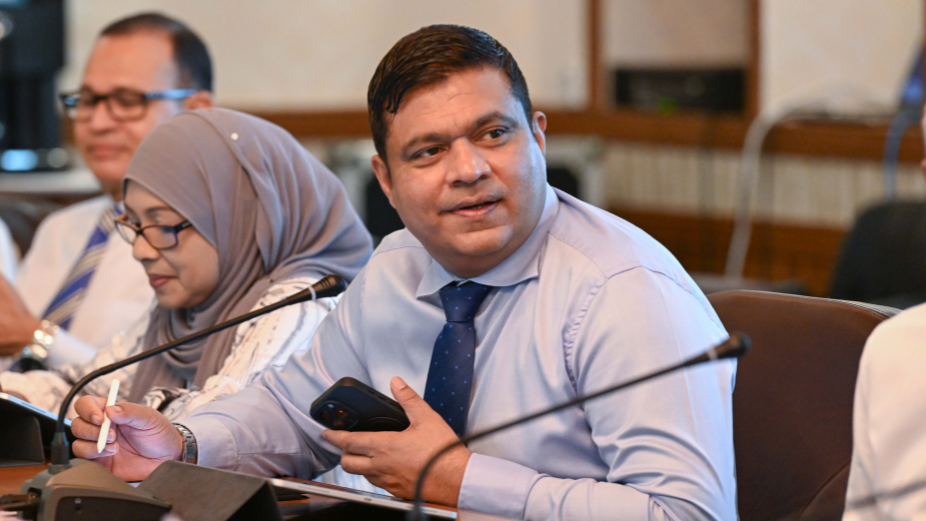
Transport Minister Mohamed Ameen has assured that Male’ city’s taxi services will operate without disruption, even as the government prepares to transfer service management to a state-run entity. This announcement followed recent concerns that the livelihoods of current taxi drivers might be at risk due to the change in management. Speaking at the President’s Office, Ameen clarified that the government will prioritise the welfare of existing drivers as it implements the new system.
The forthcoming government-operated service will run continuously, integrating seamlessly with the Raajje Transport Link (RTL) bus network managed by the Maldives Transport and Contracting Company (MTCC). Ameen highlighted the administration’s commitment to protecting the interests of drivers, affirming, “The government will not do anything to harm those currently in the taxi business.” He elaborated that the updated service would avoid disrupting the income of current drivers, ensuring that the transition benefits both the public and service providers alike.
In its efforts to modernise and meet the growing demand for taxi services in Malé, the government has laid out several measures to ensure stability and enhance service standards. Ameen underscored that existing fare rates would remain consistent to reflect residents’ financial circumstances, with no increases planned as part of the new structure. Furthermore, the government aims to improve overall service quality, benefiting both drivers and passengers through operational changes designed to meet public needs more effectively.
The initiative will be managed without subsidies, although the government will provide necessary capital investment. Around half of the positions within the taxi line will be offered as permanent roles, while flexible shifts will be available to allow drivers greater freedom over their working hours. Ameen revealed that drivers would receive a minimum hourly wage of MVR 100, with salaries paid weekly to enhance financial stability for those involved. In addition, drivers will be required to wear a standardised jacket, ensuring they are easily identifiable to passengers. Foreign nationals will be excluded from driving taxis under the new system, maintaining these roles for Maldivian drivers exclusively.
Drivers participating in the programme will still be allowed to operate their own taxis, and the new system will not restrict trips to specific destinations. Operations will be closely monitored through a computerised tracking system to ensure efficiency and service quality. According to Ameen, these updates have been carefully structured to avoid any negative impact on the livelihoods of those already working in the industry, and are focused on addressing existing gaps in service to meet the demands of Malé’s residents.








